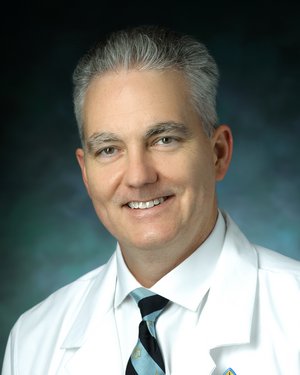High Reliability Organization Assessment and Implementation
Our Solution
Our goal is to help clients pursue zero patient harm.
In health care, high reliability organizations represent the elimination of unwarranted variation in care delivery — which improves clinical results and reduces costs. Johns Hopkins helps health care organizations reach this level of clinical and operational excellence.
Our high reliability organization assessment and implementation consulting program provides health care leaders a window into Johns Hopkins Medicine’s delivery of consistently safe, high quality and high-value care. By working with Johns Hopkins, stakeholders will gain a deeper understanding of the structures, strategies and resources needed to take patient safety and quality to the next level. We help health care organizations increase patient safety and improve outcomes, and we use evidence-based practice to sustain these achievements over time.
Our Approach
The Johns Hopkins Armstrong Institute for Patient Safety and Quality is a world leader in tackling preventable harm, reducing medical errors, improving clinical outcomes and reducing waste in health care delivery. Clients learn from our global quality improvement leaders, who have the skills, concepts and knowledge to help embed health care improvement efforts into the client organization.
Our high reliability organization program focuses on leadership practices, culture, organizational systems and structures to support patient safety, process improvement and clinical practice. We provide an integrated framework to govern the way individuals work together to achieve the mission of ending preventable harm, continuously improving patient outcomes and experience, and eliminating waste in health care.
Program areas of focus include:
Governance, leadership and accountability
The governing body provides oversight for quality and safety wherever care is delivered within the health system. Shared accountability flows from the board to the bedside.
Systems thinking, risk identification and mitigation
Members of the organization understand upstream and downstream implications of their work, and partner effectively with colleagues within and across departmental silos.
Capacity and infrastructure
Structure and capacity for quality, safety and service are developed collaboratively using a fractal model. An enabling infrastructure is resourced to provide expertise, and to coordinate and support the work.
Transparency, communication and teamwork
Multidisciplinary collaboration, coordination of care and patient communication is important for clinical and administrative functions with staff, patients and families.
Insight and innovation
Insights are gained through synthesis of meaningful, accurate, actionable information from all available internal and external sources of data.
Our program can be customized to help health care organizations on their journey to high reliability.
Featured Experts
-
Wilma Berends, M.S.N., C.P.H.Q.
Wilma serves as a nurse consultant for the Global Services Clinical Quality and Nursing team at Johns Hopkins Medicine International. In this capacity, she facilitates the development of structures and processes needed to ensure the delivery of quality nursing and patient care.

-
Cindy Dwyer, R.N., B.S.N.
Cindy Dwyer is an experienced health care quality coach with over 25 years of experience in critical care at Johns Hopkins. She is currently an active research nurse at the Armstrong Institute for Patient Safety and Quality.

-
E. Robert Feroli Jr., Pharm.D., F.A.S.H.P.
Robert Feroli is a consultant responsible for helping to minimize patient harm caused by medication errors. His focus is on the medication-use systems of health care organizations to improve safety, efficiency, therapeutic appropriateness and compliance with JCI standards.

-
Clare Rock, M.B.B.Ch.
Clare Rock is an associate professor of medicine in the Division of Infectious Diseases. She is a hospital epidemiologist, infectious diseases physician and core faculty at the Johns Hopkins Armstrong Institute for Patient Safety and Quality.

-
Matthew Stewart, M.D., Ph.D., F.A.C.S.
Matthew Stewart specializes in surgery of the inner ear, skull-base tumors, sudden hearing loss and surgical restoration of hearing through cochlear implantation. His research focuses on health care quality implementation in microsystems.

-
Laura Winner, R.N., B.S.N., M.B.A.
Laura Winner is the senior director of operational excellence for the Johns Hopkins Health System and the Armstrong Institute for Patient Safety and Quality. Laura oversees the Lean Sigma team operations for the Johns Hopkins Health System.

-
Albert W. Wu, M.D.
Albert Wu is a professor of health policy and management and medicine, with joint appointments in epidemiology, international health, medicine and surgery.

-
Jonathan Mark Zenilman, M.D.
Jonathan Zenilman is known internationally for his work in infectious disease epidemiology. He is a professor of medicine at Johns Hopkins and also has joint appointments in population, family and reproductive health and international health and epidemiology.

Find the Right Solutions for Your Organization
Let Johns Hopkins Medicine’s team of clinical and professional experts guide you to the right health care solutions for your organization.
